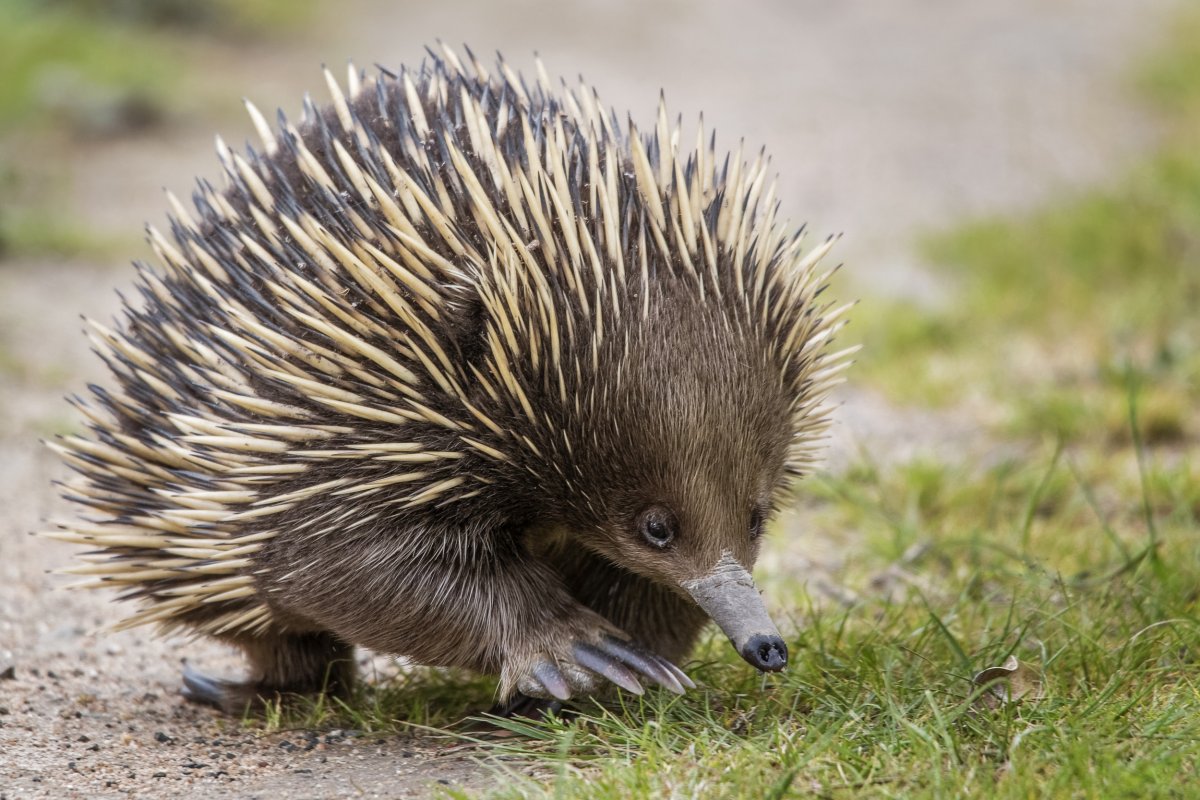Echidnas are one of the only egg-laying mammals on the planet. Unfortunately, a group of the spiny critters chose a farmhouse in the Australian outback to mate and the scraping of their porcupine-like quills is making it impossible for the residents to sleep.
It's echidna mating season and at least six have crawled beneath the floorboards of Lynelle Urquhart's home near Moonie, Queensland. "Our house is pretty close to the ground, and echidna quills scrape on the floorboards, and when that's under your bed at night it can keep you awake." Urquhart told Australia's ABC,
"I had to have a sleeping tablet last week, because of all the scratching around through the night," she added.

The four-legged houseguests don't seem to mind their human hostess. "They walk in between my legs, and as long as I didn't make a noise they didn't see me as a threat," Urquhart says. And her dogs are more scared of them than they are of the dogs.
Urquhart is excited to host so many of the exotic animals—she suspects they like her farmland because the soil is still wet and they can dig around in it.
"And digging is what echidnas love to do," she adds.
Echidnas waking up the neighboursWelcome to southern Queensland, where you need to take a sleeping pill because the echidnas make too much late-night noise during mating season!Oh, and they dig too!🎥 Lynelle Urquhart
Posted by ABC Southern Queensland on Tuesday, July 30, 2019
Urquhart says she'd love to see some puggles (the term for baby echidnas) but its unlikely she will. When a puggle hatches it climbs into its mother's pouch until it grows quills. Then it movies into a secluded "nursing burrow," until it grows large enough to be out in public.
Beyond laying eggs, echidnas have a number of other odd characteristics: Females having pouches like kangaroos and, like platypuses, males have spurs on their hind feet—though unlike the platypus', they're non-venomous.
And both males and females have a cloaca—a single opening used for mating, urinating and pooping—common in amphibians, reptiles and birds, but very rare in mammals.
An echidna's droppings are easy to identify. "[They're] cylindrical and quite heavy," Frank Grutzner, an echidna expert at the University of Adelaide, told ABC. "Because they are insectivores and eat a lot of ants, the scales and exoskeletons 'decorate' the poo... it's quite glittery,"
If you want to attract echidnas to your property, Grutzner says that the animals prefer logs and trees to escape the heat, lots of ants to eat, and loose dirt to dig in. Of course, it helps to live in Australia or New Guinea, the only areas where they're found in the wild.
Despite their rarity, echidnas have garnered a small amount of popular culture fame: Knuckles, a character from Sonic the Hedgehog, is an echidna and an echidna appears on the Australian five-cent coin.
Uncommon Knowledge
Newsweek is committed to challenging conventional wisdom and finding connections in the search for common ground.
Newsweek is committed to challenging conventional wisdom and finding connections in the search for common ground.
About the writer
Matt Keeley is a Newsweek editor based in Seattle. His focus is reporting on trends and internet culture. He has ... Read more
To read how Newsweek uses AI as a newsroom tool, Click here.








